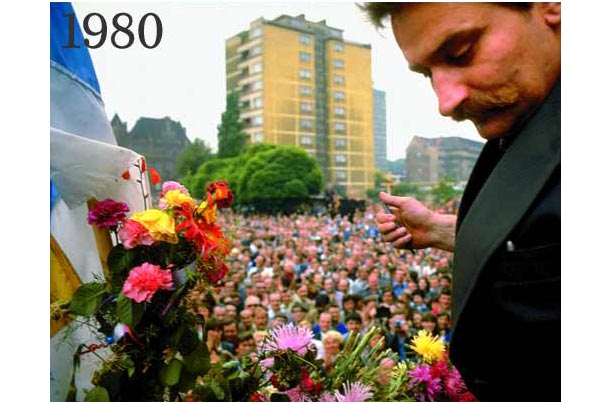
Gdansk Shipyard: This area became the focus of nationwide strikes in the summer of 1980, forcing the communist government to concede to worker demands for the right to form an independent trade union
“After leading the failed shipyard strike in 1970, I thought: ‘God, let me come back here and carry out once again the fight with this gang and win.’
I was entirely devoted to the cause. Nothing counted — money, wife, children, life, death. Nothing. I only did what I believed in. And I believed in the strike. Later, in 1989, as communism collapsed, I knew that democracy and pluralism would also bring divisions. For this reason, I had doubts about whether handing over power to the masses would be good for Poland.
In spite of the fact that Solidarity was my baby, I was afraid that if the workers didn’t have work and bread, they might resort to violence — building gallows to settle accounts with former communist leaders.
As President, I wanted to beat lawlessness with law, lack of democracy with democracy, and I expected the nation would understand my intentions and give me a second term in office. But I didn’t get it. Looking back, maybe I should have done more to explain my belief that a presidential system with decrees would be better for the country.”
Lech Walesa is the leader of the Solidarity movement and former Polish President